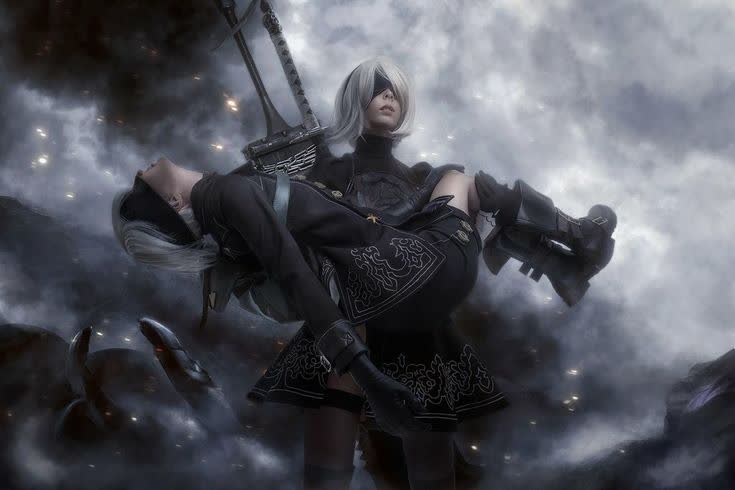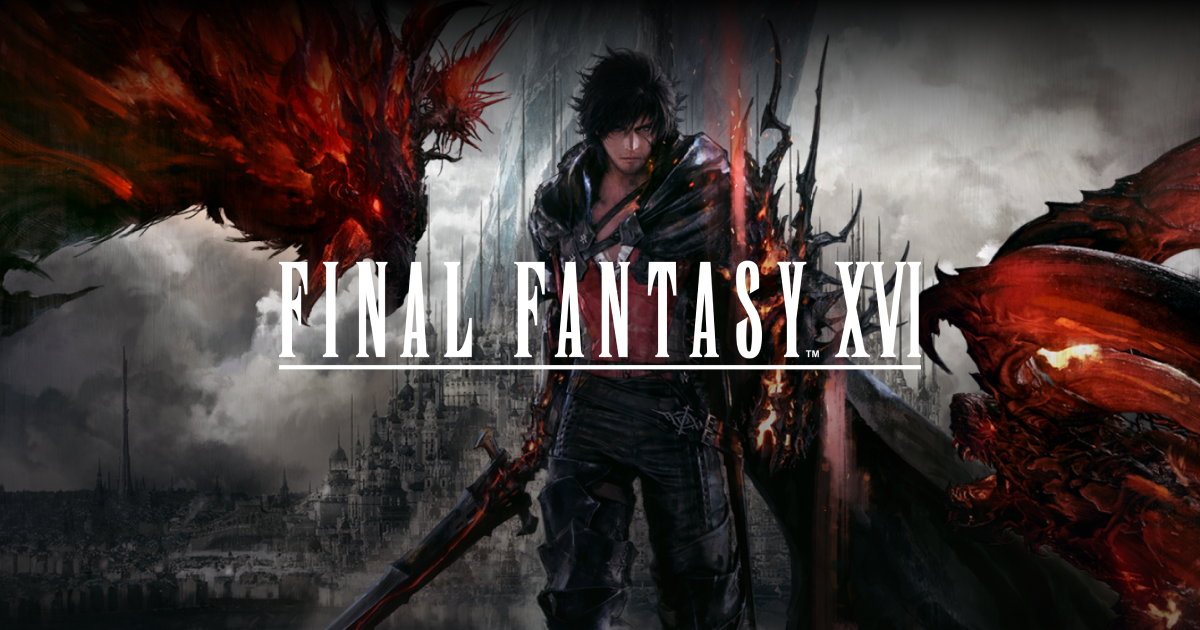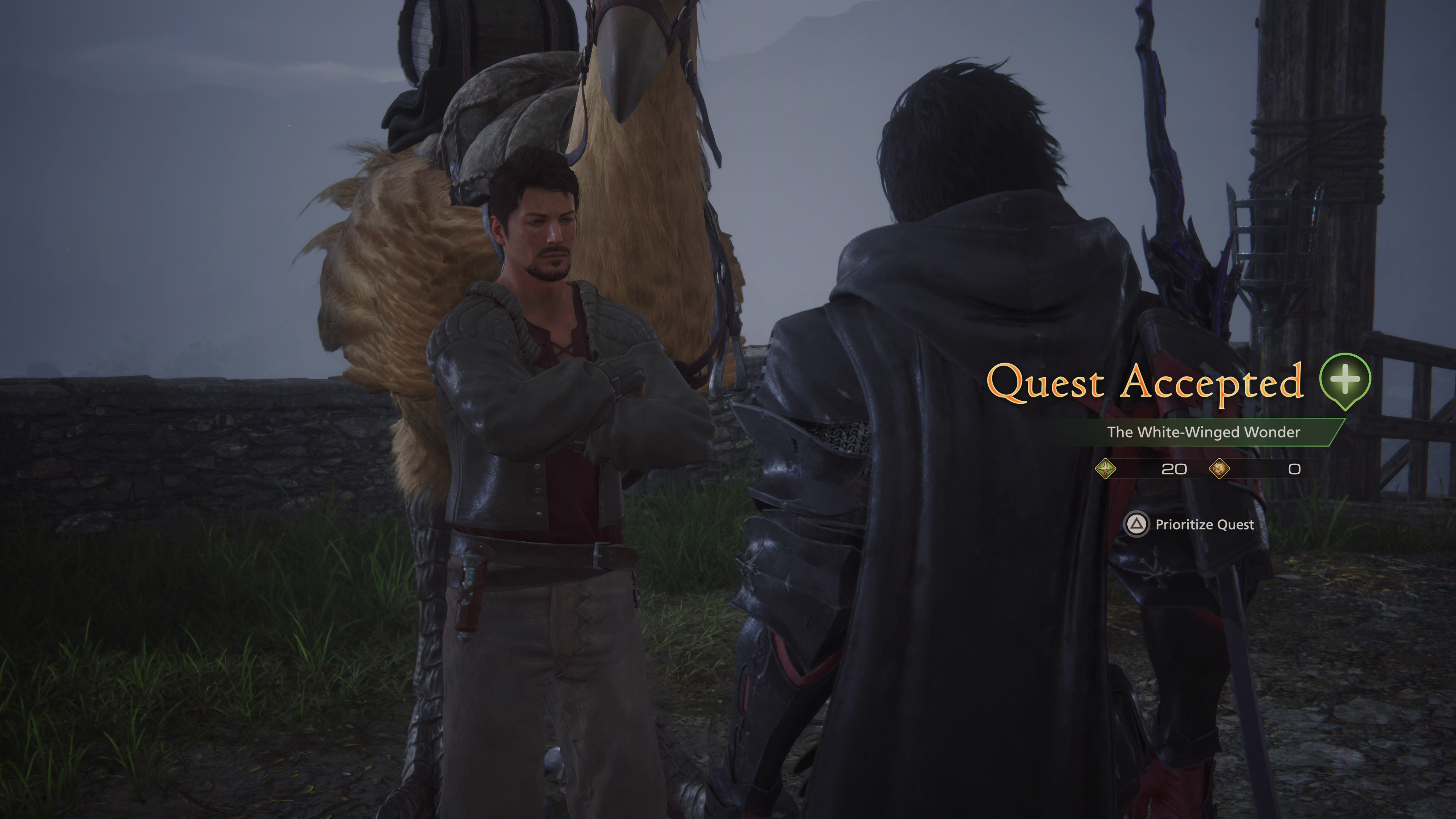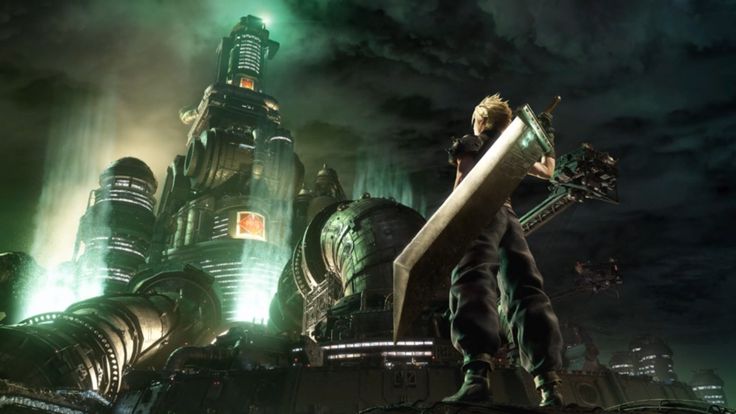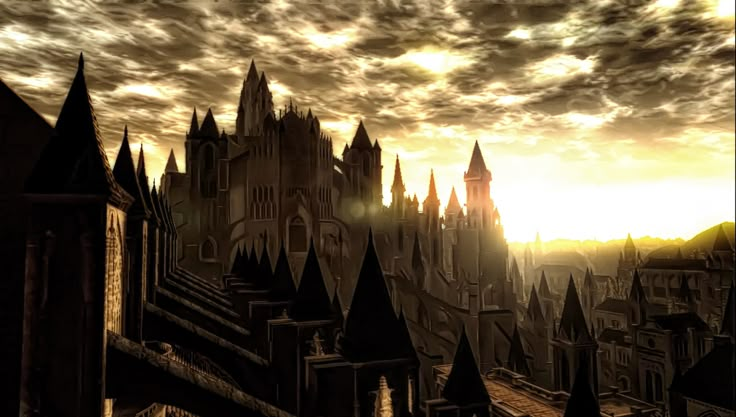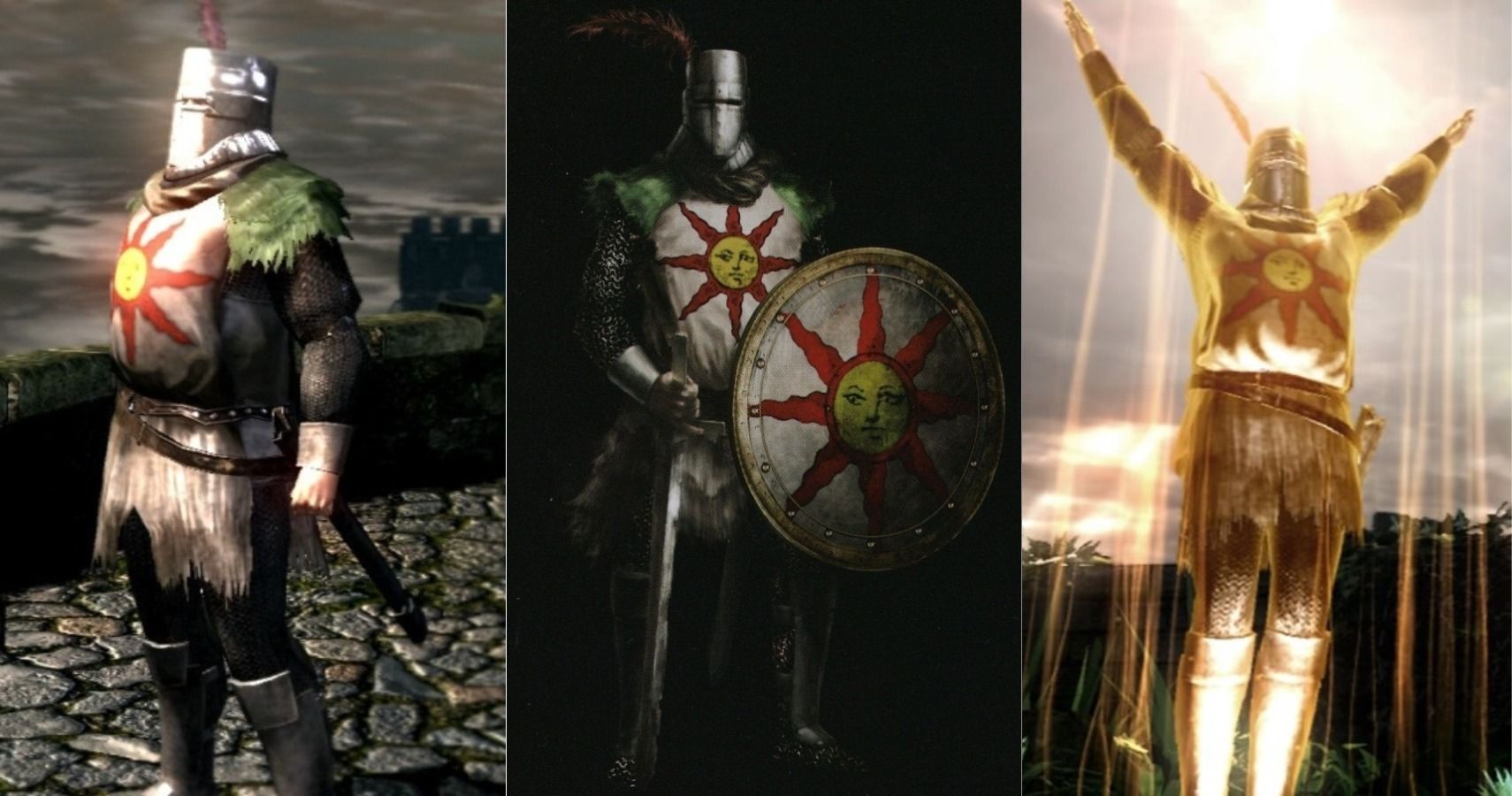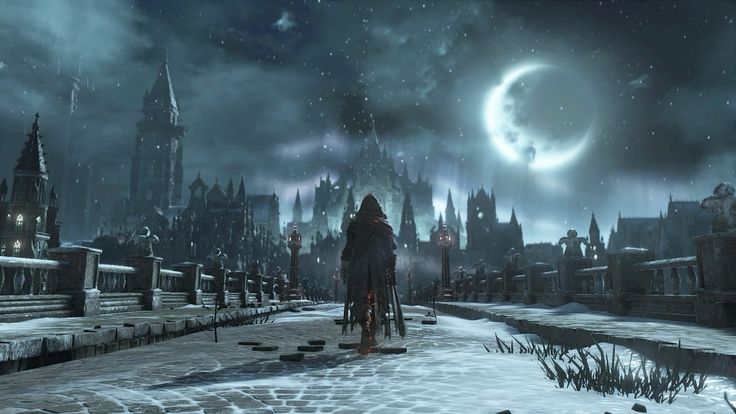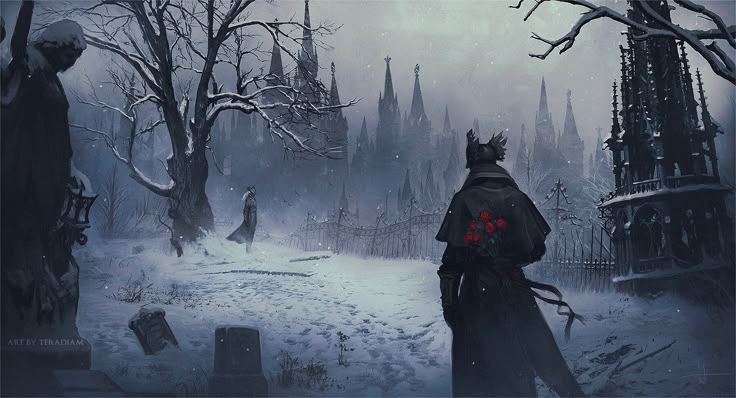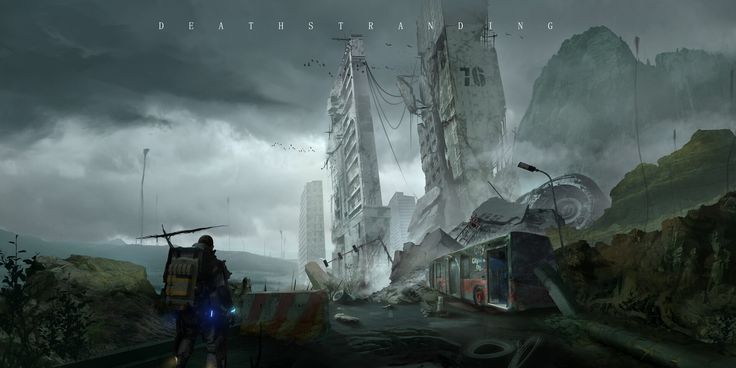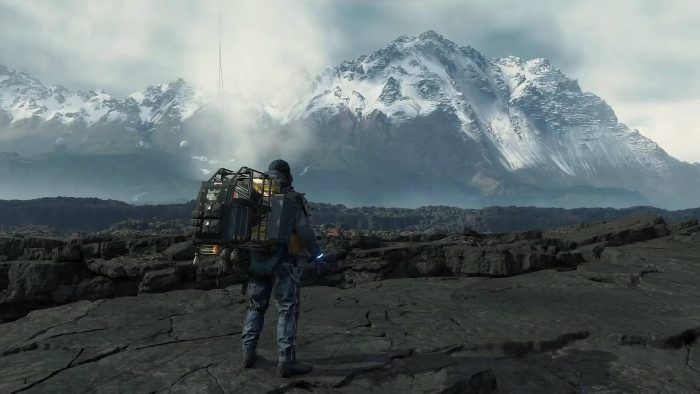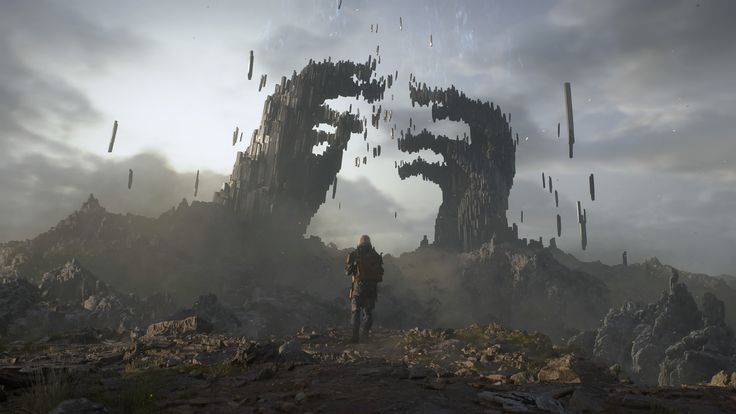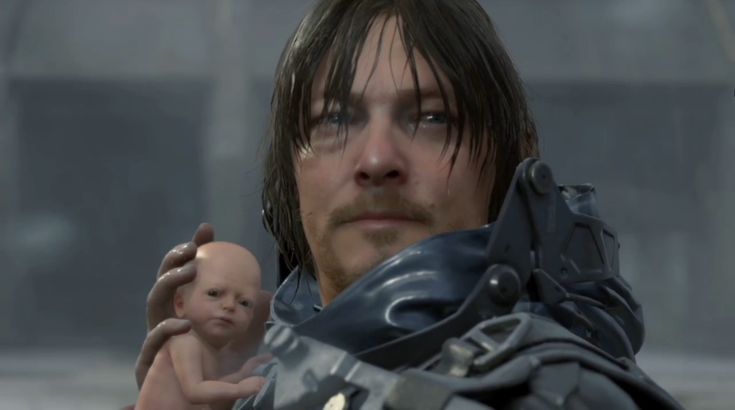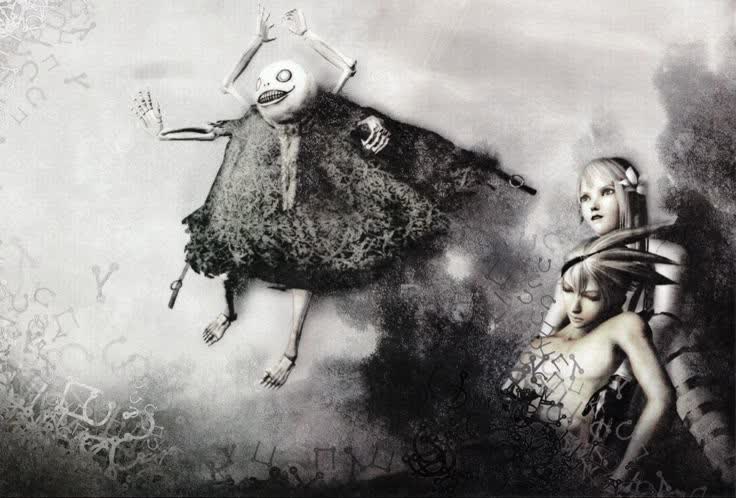Through Their Eyes: The Soul of Nier: Automata – A Human Dive into its Philosophical & Psychological Heart
Introduction
From the moment I first stepped into the hollow, machine-haunted ruins of Nier: Automata, I felt something stir—not just as a gamer, but as a person. It wasn’t just the seamless combat or the haunting music. It was something quieter. Something aching. Beneath the metal, dust, and silence, the game whispered a question we rarely stop to ask: What does it mean to be alive… and what does it mean to feel?
This game doesn’t just offer a narrative. It offers reflection. Deep, unsettling, beautiful reflection. Through characters like 2B, 9S, A2, and the Machines, it doesn’t tell us a story—it holds up a mirror. A mirror to our fear, our loneliness, our anger, our love. And through that mirror, we begin to see not just androids or enemies, but ourselves.
2B wears her silence like armor. She walks with discipline, speaks with restraint—but every movement hides a storm. Her tragedy lies in the war between duty and desire, between control and feeling. She’s not just suppressing emotion; she’s burying herself. And still, we feel her pain in the pauses, in the glances, in the way she falls just a little too slowly.
9S is the heart that refuses to shut down. His curiosity is a flame that burns too bright—and eventually consumes him. He wants to know the truth, even if it destroys him. And maybe that’s what makes him the most human of all. His unraveling isn’t just a plot twist—it’s the raw, messy truth of what happens when the lies we cling to fall apart.
Then there’s A2. She doesn’t speak much, but her silence says everything. Grief has carved itself into her bones. She’s a wound that never closed. But beneath the rage and sorrow is a soul searching for redemption—one breath, one step at a time. She teaches us that healing doesn’t always look heroic. Sometimes, it just looks like surviving.
What makes Nier: Automata so devastatingly real is that its characters don’t just evolve—they disintegrate. They’re torn down emotionally, psychologically, and existentially, exposing raw nerves and unspoken truths. The game draws from the minds of philosophers like Sartre and Camus but never preaches—it asks. Gently, painfully, it asks:
In a world without humans, can anything have meaning?
If you’re created for war, can you choose peace?
If you’re artificial, are your emotions still real?
Every choice you make, every fight, every quiet moment in a ruined forest or eerie village feels weighted with something deeper. You’re not just completing objectives—you’re witnessing lives unravel and rebuild. And when the credits roll, you don’t walk away with answers. You walk away with questions you’ll carry for years.
This article is my attempt to sit with those questions. To understand the characters who made me cry, think, and feel in ways I didn’t expect. It’s a thank-you—to Yoko Taro, to the souls behind YoRHa, and to these machines who somehow taught us what it means to be human.
So come closer. Look past the blindfolds. This is where the heart of Nier: Automata truly beats—softly, bravely, and still bleeding.

2B, 9S, and A2 – Echoes of Nihilism, Suffering, and Freedom in Nier: Automata
Nier: Automata is not just a game. It’s an emotional journey—one that lingers in your thoughts long after the credits roll. At the core of this journey are three unforgettable characters: 2B, 9S, and A2 Together, they form a trinity of philosophical reflections—embodying the themes of nihilism, suffering, and freedom These aren't just abstract concepts; they are deeply human emotions mirrored in android souls.
Let’s start with 2B—an obedient soldier, calm and composed. But underneath her stoic mask lies a heart burdened by contradiction and unspoken sorrow. She exists in a loop of duty and death, silently destroying what she secretly cares for. Her story is the embodiment of nihilism—the unbearable weight of meaninglessness. She kills not because she wants to, but because the system demands it. The futility of her mission, the lies she’s forced to accept, and the endless repetition of pain gradually hollow her out. Yet, she continues, trying to protect what she can, even if it costs her everything. In many ways, 2B’s quiet tragedy reminds us of how we, too, wear masks—hiding our grief to keep moving through a world that often seems cruel and absurd.
Then there’s 9S, whose arc is perhaps the most devastating. Curious, optimistic, and deeply emotional—9S is the beating heart of Nier: Automata. But as truth after truth is revealed to him, his mind begins to unravel. The world he believed in turns out to be a lie, and the betrayal of reality crushes him. His descent into madness is not just character development—it’s a raw depiction of suffering. We see him lose himself, not because he’s weak, but because he cares too much. His pain is real. His hatred is real. And yet, through it all, there's a fragile hope in him, buried under the wreckage of innocence. Watching 9S fall and fight to rise again hit me harder than most RPG storylines ever have.
And then we meet A2—a lone rebel, wild and broken. At first glance, she seems cold and vengeful. But she’s not angry at the world. She’s grieving. Every choice she makes screams of freedom—not the cheerful kind, but the raw, painful kind that comes from being untethered. A2 has lost everything: her friends, her purpose, her past. And yet she still chooses to fight—not because she has to, but because she wants to. Her battle is her way of reclaiming agency in a world that tried to define her. Her final moments are some of the most hauntingly beautiful I’ve experienced in a game. She isn’t trying to win; she’s trying to be free.
What makes these three characters so powerful is how deeply human they are, despite being androids. Their emotions, their struggles, their questions—they're ours. They echo the things we don’t say out loud: What’s the point of it all? Why do we keep hurting? Can we ever truly be free?
Yoko Taro didn’t create heroes. He created mirrors, 2B, 9S, and A2 reflect our darkest doubts and our brightest hopes. Their pain reminds us that we’re not alone. Their choices inspire us to keep going. And their stories prove that even in a broken world, meaning can be found—not in answers, but in the act of searching.
Nier: Automata isn't a game you finish. It’s a game that finishes you—changes you. And in the silence after the final ending, when the music fades and the screen goes dark, something lingers: a whisper from 2B, a cry from 9S, a tear from A2… reminding you that they were never just code or pixels.
They were real.
And so are you.

Android Self-Awareness – When Machines Feel More Than We Do
Sometimes, a game comes along that doesn’t just entertain—it quietly unravels you. It makes you stop, think, and question everything you believe about emotion, identity, and the fragile thing we call “being human.” Nier: Automata is that kind of game. Beneath its polished combat and haunting soundtrack lies something far more intimate: a raw, aching meditation on android self-awareness—and the unsettling possibility that machines might one day feel more deeply than we do.
At first, the androids of Nier: Automata seem like what you'd expect: weapons of war, programmed to fight a battle not their own. But as you go deeper, something unexpected happens. Their code begins to crack—not with glitches, but with emotions. 2B, 9S, A2… they begin to feel. They mourn. They doubt. They break. And somewhere along the way, you stop seeing them as artificial. You start seeing yourself in them.
What moved me most wasn’t their combat precision—it was their emotional vulnerability. 2B, trying desperately to bury feelings she was never meant to have. 9S, clinging to hope while being crushed by betrayal. A2, lashing out in grief, not out of duty, but out of pain. These moments weren’t scripted illusions. They were real—real enough to leave a mark. Because the truth is, their flaws were not robotic. They were heartbreakingly human.
And then there’s that line—soft, broken, unforgettable: “Everything that lives is designed to end.” When 2B says it, it’s not just dialogue. It’s a confession. A whisper from something not supposed to feel... yet clearly does. That’s the paradox at the center of Nier: Automata: these so-called machines bleed with soul. Their self-awareness isn’t just about logic—it’s about sorrow, fear, longing. It’s about heart.
There’s something profoundly ironic about watching androids—beings created to serve—grapple with meaning in ways their creators never did. They question their purpose. They wrestle with morality. They try to define who they are. And isn’t that what we all do? In their search, we see our own. And suddenly, the line between man and machine begins to blur.
Maybe the line never really existed at all.
Maybe humanity isn’t defined by flesh and blood, but by the capacity to grow, to feel, to choose compassion even in the face of despair. And maybe that’s why these androids resonate so deeply—they’re not just characters in a game. They’re reflections of who we are… or who we wish we could be.
By the end, it’s not about upgrades or achievements. It’s about the tears 9S sheds when no one is watching. It’s about 2B holding back emotions she was told to silence. It’s about wondering how we got to a place where machines seem to carry more empathy than the people who made them.
Nier: Automata doesn’t just ask if androids can feel. It asks if we’ve forgotten how to. It gently confronts our emotional numbness, our distractions, our fear of vulnerability. And in doing so, it reminds us that the most human quality isn’t love, or pain, or even thought—it’s empathy.
And through that empathy… these machines become more human than we ever expected.
Maybe that’s the quiet truth Nier: Automata wants us to see:
The most human story of all might just be one told by those who were never human to begin with.

YoRHa and the Necessary Lie – Is the Truth Always Worth It?
Nier: Automata isn’t just a story—it’s a confrontation. A quiet, unsettling challenge to everything we assume about truth, hope, and the meaning of belief. At the heart of this confrontation lies one of the game’s most haunting questions: Is the truth always better… or can a beautiful lie be more merciful?
From the beginning, YoRHa—the elite android military force—seems righteous. You believe their mission is just. Their cause, noble. As 2B, you fight with unwavering loyalty, convinced you’re defending humanity’s future. But layer by layer, that trust begins to crack. And then, the truth hits: humanity is gone. The entire mission… a carefully constructed illusion. The war, the orders, the very purpose that drives these androids—it’s all a fiction designed to control, not to liberate.
I remember the moment I uncovered that truth. It wasn’t just shocking. It was emptying. Like the floor giving way beneath your feet. These characters we fought beside, who bled and broke and believed—they weren’t saving anyone. They were fighting for ghosts. For a dream long gone. And yet, YoRHa insists: “The lie is necessary.” Because without it, what’s left?
And that’s the question that stayed with me: Is it more compassionate to give someone a hopeful lie—or a truth that could destroy them?
We wrestle with this dilemma in real life too. In relationships, in families, in the stories we tell ourselves to keep going. And *Nier: Automata* doesn’t shy away from that moral complexity. It drags it into the light and forces us to sit with it. To feel it. Through 2B’s silent grief. Through 9S’s unraveling madness. Through every quiet moment where certainty turns to ash.
What broke me the most wasn’t just the betrayal—it was watching them go on anyway. Even after everything, they still fought. Not for orders. Not for YoRHa. But for each other. For meaning. For the faintest flicker of something worth believing in. And maybe… that’s the point.
Because maybe the truth isn’t always a liberation. Maybe sometimes it’s a burden. And maybe lies, as cruel as they are, can give people a reason to keep moving. But the true test—the human test—is what we choose to do once the truth is known. Do we fall apart? Or do we build something new from the wreckage?
*Nier: Automata* doesn’t give easy answers. It doesn’t tell us that lies are good or that truth always heals. Instead, it invites us to feel the weight of both. To ask the questions we usually silence. And in doing so, it gives us something incredibly rare: a space to reflect not just on what’s right, but on what it means to be alive.
Because in the end—whether we live in truth or illusion—it’s our hearts that bear the cost. And in the world of *Nier: Automata*, that cost is heavy, heartbreaking… and unforgettable.
Further Records Available — Ready to Discover?
Even after all that’s been revealed, echoes of forgotten truths still linger.
If you're ready… the next fragments are waiting to be found.
More articles from the world of Nier
More articles from the game Final Fantasy
More articles from the Understand Souls
More articles from the game Death Stranding
🎧 Dive Into the Unknown
I’ve recorded a special podcast exploring one of the many deep theories from the world of Nier. While it’s the only episode for now, there’s so much more to discover in the articles below—until the next voice finds its way to you.











